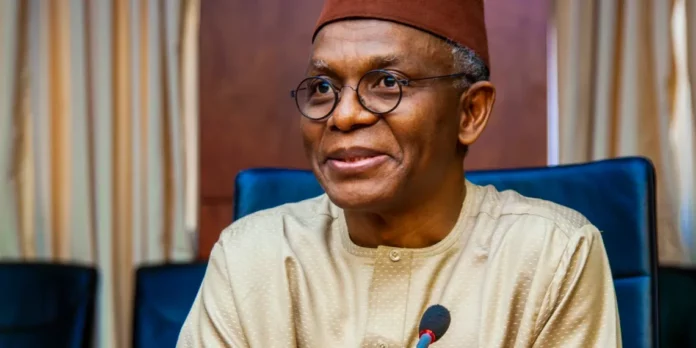Former Kaduna State Governor, Nasir El-Rufai, has raised alarm over the rising poverty levels in Nigeria, saying that the country now has more poor people than it had total population at independence in 1960.
Speaking during an interactive session in Owerri, the Imo State capital, El-Rufai said that Nigeria can defeat poverty if the government treats it as a top priority. He called for a realistic and focused economic plan that empowers hardworking citizens and reduces the growing number of people living below the poverty line.
The former governor, now a prominent figure in the African Democratic Congress (ADC), also shared the full details of his speech on his X (formerly Twitter) handle, drawing reactions from Nigerians across political lines.
“It is deeply embarrassing that, judging from the population estimate in 1960, there are now more poor Nigerians than there were Nigerians at independence 65 years ago,” El-Rufai said.
He continued: “China has beaten mass poverty, while India is on a path to ending it. We too can do it if we make it a governance priority to move our people out of poverty.”
Nigeria gained independence from Britain on October 1, 1960, with an estimated population of around 45 million people. According to recent statistics from the National Bureau of Statistics (NBS), over 130 million Nigerians are now considered multi-dimensionally poor — lacking access to basic needs like food, clean water, healthcare, and education.
The World Bank has also warned that the removal of fuel subsidy and high inflation are pushing more Nigerians into poverty, even as the government struggles with unemployment and a weakened naira.
In this context, El-Rufai’s comments are a direct call to action for the administration of President Bola Ahmed Tinubu to urgently rethink its economic and social policies.
El-Rufai criticized the creation of large government agencies that, in his view, consume resources without solving problems. He referred in particular to agencies focused on humanitarian affairs and poverty alleviation, which he described as “massive bureaucracies” that deliver little to the ordinary Nigerian.
“What is needed is not new agencies of poverty alleviation or humanitarian affairs with massive bureaucracy,” he said. “But rather, innovative ways to make honest, hardworking citizens more productive and better-rewarded, while discouraging rent-seeking and other get-rich-quick schemes in our society.”
He highlighted the need for a practical and result-oriented economic program, one that is ambitious in its goals but realistic in its execution.
El-Rufai pointed to countries like China and India as examples Nigeria should study and follow. He noted that China has successfully lifted over 800 million people out of poverty in the last four decades through sustained investments in rural development, infrastructure, and job creation.
India, with a population of over 1.4 billion people, is also making progress in reducing poverty, particularly through its digital ID system, cash transfer programs, and rural employment schemes.
“Nigeria does not lack resources or talent,” El-Rufai added. “What we lack is political will and the discipline to focus on what truly matters — lifting our people out of poverty and giving them a chance at a better life.”
El-Rufai’s remarks have sparked a debate on social media and among political commentators. Some praised his boldness and honesty, while others accused him of speaking out only after leaving office.
As poverty deepens across many parts of Nigeria, especially in the North and rural areas, many citizens are looking to leaders for bold solutions. With inflation above 25%, food prices rising, and unemployment affecting millions of youths, the call for a serious, focused economic rescue plan is louder than ever.

